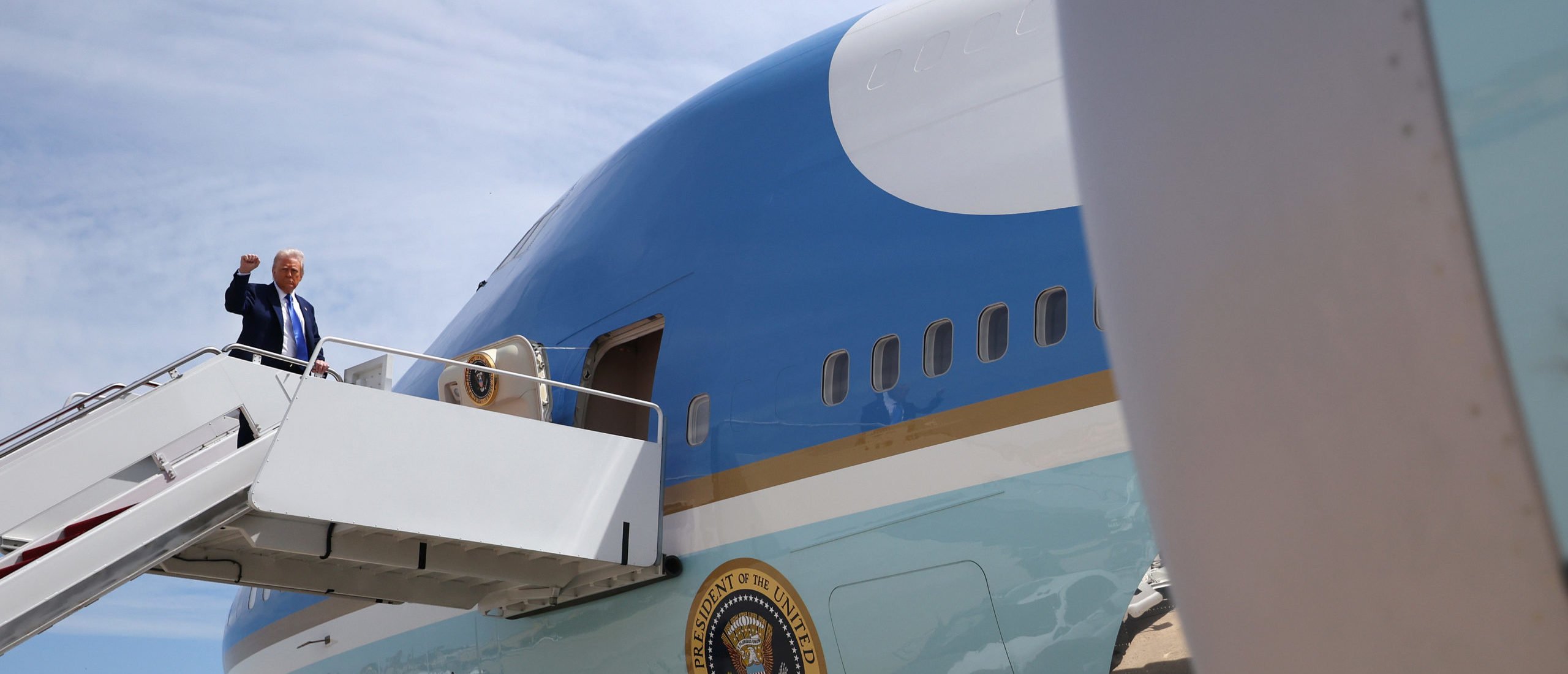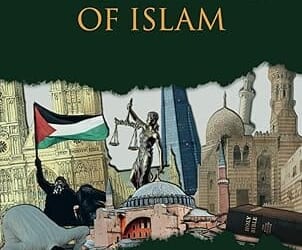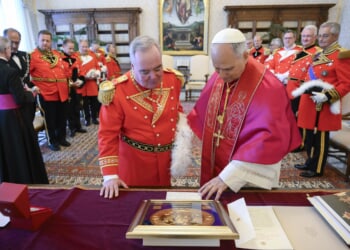President Donald Trump’s week-long trip to the Middle East is expected to result in several economic and business deals as he attempts to shore up relationships with Gulf states in one of the first major international trips of his second term.
Trump’s trip will take him to Saudi Arabia, the United Arab Emirates (UAE) and Qatar, and the president is expected to pursue major deals and investments. Trump’s arrival in the region also mirrors his 2017 visit to the region, a trip that resulted in later diplomatic wins, such as the 2020 Abraham Accords that normalized ties between Israel and several nations in the Arab world.
“There will be some economic announcements that will take place. I can’t divulge what they will include now, but I can say that they have to do with aviation, defense and a lot have to do with security,” Dr. Majed al-Ansari, advisor to the Qatari Prime Minister and official spokesperson of the Ministry of Foreign Affairs, told the Daily Caller News Foundation. (RELATED: Trump Admin Wants To Accept Largest Gift From Foreign Government In US History: New Air Force One From Qatar)

U.S. President Donald Trump boards Air Force One on May 12, 2025, at Joint Base Andrews, Maryland. (Photo by Win McNamee/Getty Images)
The Gulf states have enjoyed a cordial relationship with the Trump administration so far, and the president is reportedly aiming to score a massive $1 trillion investment deal with Saudi Arabia as the first win in his blitz across the Arabian Peninsula. Trump will arrive in the UAE on the heels of a massive $1.4 trillion investment from the nation finalized in March, targeting energy, artificial intelligence and semiconductors.
“These kinds of visits are always the catalyst, and states use it as a way of pushing business deals, economic deals, pushing things that will take a long time,” al-Ansari told the DCNF. “Visits can facilitate these things, making their bureaucratic schedules in order to get things done.”
Qatar made headlines recently by their reported offering of a $400 million Boeing jet intended to serve as a replacement for the aging Air Force One. However, al-Ansari told the DCNF that the deal was not finalized yet and its fate remains unclear.
Trump defended the deal, saying he would be “stupid” not to take the gift as Boeing continues to push back its schedule for delivering a new Air Force One. Some critics have questioned the the legality and ethics of the gift, but Attorney General Pam Bondi reportedly determined that the arrangement is legal.
Additionally, Qatar has also been a mediator in the Israel-Hamas war, putting forward multiple ceasefire deals with other Arab partners, with mixed success.
“We spent over 20 years engaging with both sides,” al-Ansari told the DCNF. “We know the Israelis very well. We know the Palestinians, especially Hamas, very well. And we have went through countless mediations. So we’re working non-stop on this issue to try to create some kind of sustainable peace in that region.”
In the backdrop of the visit, U.S. special envoy Steve Witkoff will lead a fourth round of negotiations with Iran in Oman on Sunday over its nuclear program, according to CNN. The Gulf states are a key ally aligned against Iran obtaining a nuclear weapon, with member states of the Gulf Cooperation Council (GCC) slowly shifting towards the U.S. to act as a bulwark against Iranian aggression.
Iran and Saudi Arabia have found themselves on opposite sides of multiple conflicts in the Middle East, such as the Houthi rebellion in Yemen and the Syrian civil war. The Trump administration has shown interest in normalizing ties with Syria while also aiming to contain the Houthi’s threat to global shipping lanes and U.S. naval vessels.
The GCC has enjoyed close economic relations with the U.S. in the past, with the U.S. Chamber of Commerce launching the U.S.-GCC Business Initiative in 2014 to further foster business ties with the Gulf states.
All content created by the Daily Caller News Foundation, an independent and nonpartisan newswire service, is available without charge to any legitimate news publisher that can provide a large audience. All republished articles must include our logo, our reporter’s byline and their DCNF affiliation. For any questions about our guidelines or partnering with us, please contact licensing@dailycallernewsfoundation.org.




![‘It’s a Recipe for a Hundred Years of National Dominance’: Stephen Miller [WATCH]](https://www.right2024.com/wp-content/uploads/2025/05/Stephen-Miller-Completely-Obliterates-CNN-Host-Over-Her-Illegal-Immigration-350x250.jpg)
![Trump Posts Hilarious Pope Meme, Leftists Immediately Melt Down [WATCH]](https://www.right2024.com/wp-content/uploads/2025/05/Trump-Posts-Hilarious-Pope-Meme-Leftists-Immediately-Melt-Down-WATCH-350x250.jpg)



![Mother Breaks Silence After Three Daughters Killed During Father’s Custody Visit, Memorial Held [WATCH]](https://www.right2024.com/wp-content/uploads/2025/06/Mother-Breaks-Silence-After-Three-Daughters-Killed-During-Fathers-Custody-350x250.jpg)







